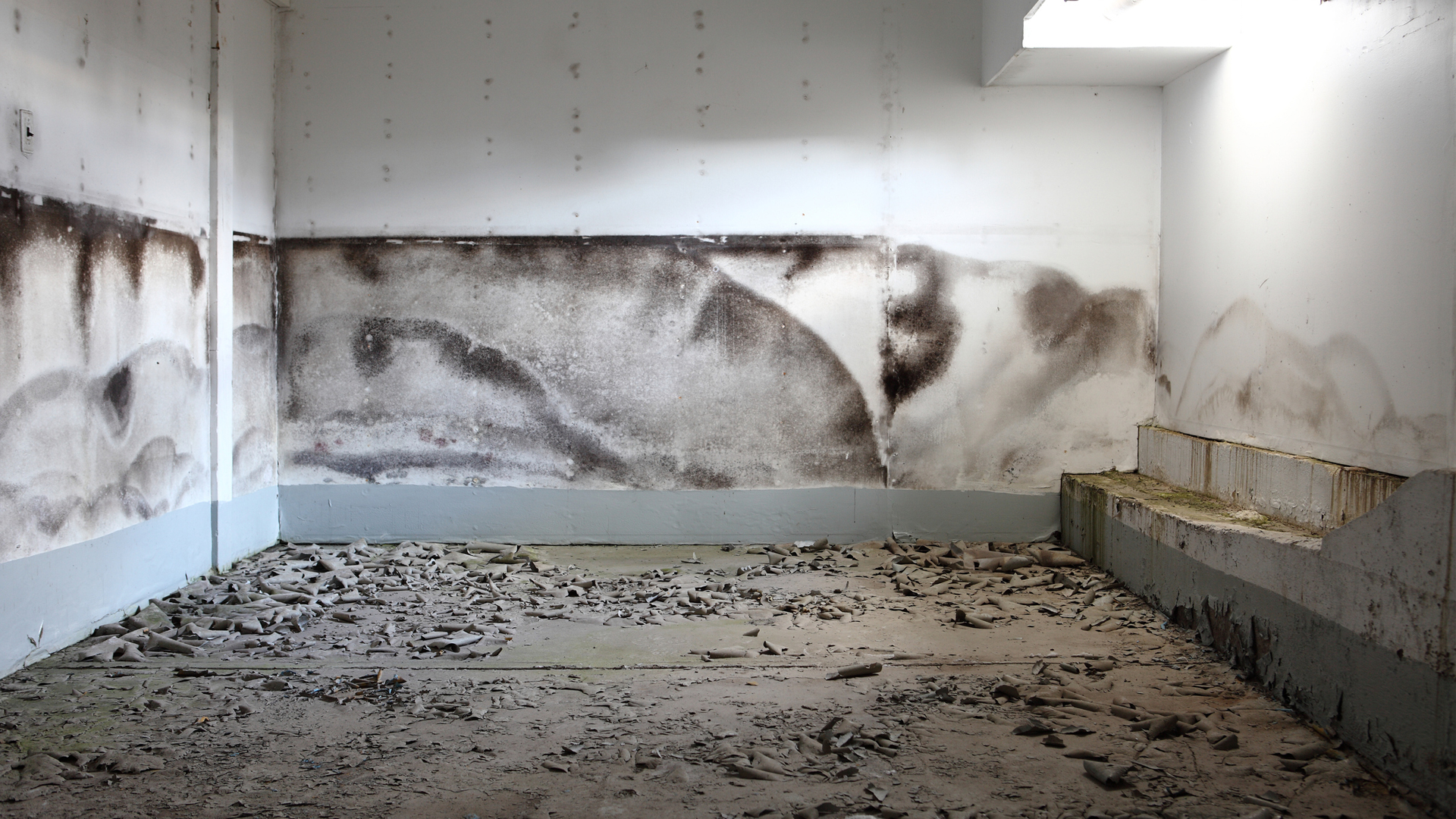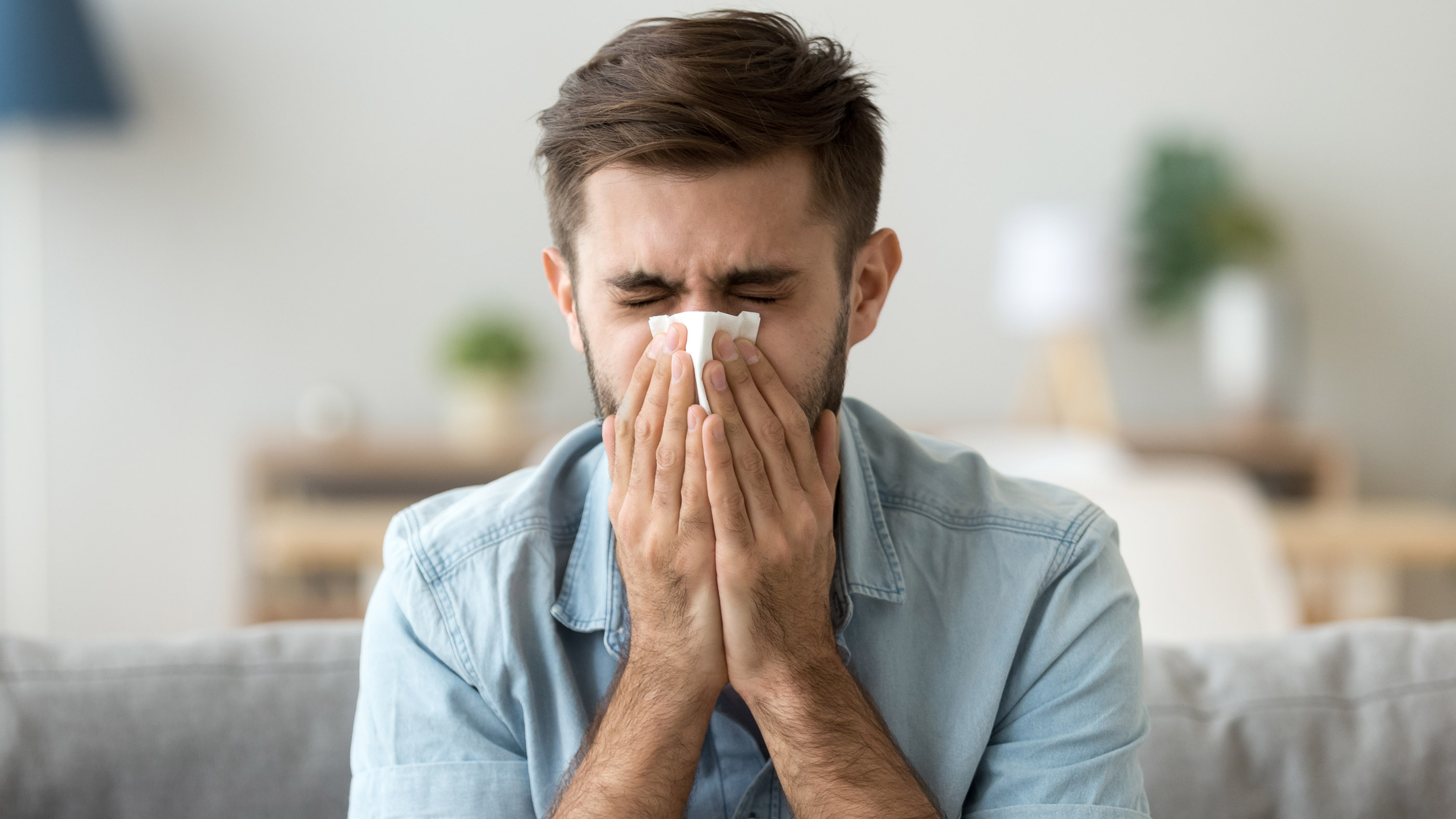Can basement mold make you sick?
It's a common home problem, but can basement mold make you sick?

Get the world’s most fascinating discoveries delivered straight to your inbox.
You are now subscribed
Your newsletter sign-up was successful
Want to add more newsletters?

Delivered Daily
Daily Newsletter
Sign up for the latest discoveries, groundbreaking research and fascinating breakthroughs that impact you and the wider world direct to your inbox.

Once a week
Life's Little Mysteries
Feed your curiosity with an exclusive mystery every week, solved with science and delivered direct to your inbox before it's seen anywhere else.

Once a week
How It Works
Sign up to our free science & technology newsletter for your weekly fix of fascinating articles, quick quizzes, amazing images, and more

Delivered daily
Space.com Newsletter
Breaking space news, the latest updates on rocket launches, skywatching events and more!

Once a month
Watch This Space
Sign up to our monthly entertainment newsletter to keep up with all our coverage of the latest sci-fi and space movies, tv shows, games and books.

Once a week
Night Sky This Week
Discover this week's must-see night sky events, moon phases, and stunning astrophotos. Sign up for our skywatching newsletter and explore the universe with us!
Join the club
Get full access to premium articles, exclusive features and a growing list of member rewards.
Can basement mold make you sick? If you have damp or mold in your home, then you probably want to know if your indoor air quality has been compromised and whether it’s likely that you and your family will suffer respiratory problems in the future.
Some people are more likely to experience health implications as a result of basement mold than others, so keep reading to find out how you can protect those who are at risk. In addition, we'll be taking a look at the steps that can be taken to reduce the risk of falling ill as a result of mold, such as ventilating your home, reducing the presence of condensation and using a dehumidifier.
Related: Best humidifiers
For more on using a dehumidifier in your home check out our feature on whether dehumidifiers are good for asthma.
Can basement mold make you ill?
The National Institute of Environmental Health Sciences (NIEHS) outlines the most common types of basement mold, several of which can cause illness. This includes alternaria – a fast-growing brown-black mold that can cause serious infections – and stachybotrys chartarum – which is often referred to as toxic black mold and thrives on damp building materials such as wood and wallpaper. Somewhat rarer is aspergillus, a type of mold that can be highly damaging to people with weakened immune systems or lung problems, such as asthma.
According to the American Lung Foundation, anyone – whether or not they are allergy suffers – can experience eye, skin, nose, throat and lung irritation when exposed to airborne mold particles and symptoms can include:
- Worsening of asthma
- Coughing
- Wheezing
- Nasal congestion
- Sneezing
- Sore throat
- Rhinitis
However, the impact of basement mold can reach far beyond these symptoms. Indoor Environment Health Consultant John McBride acknowledges that, of the many species of mold that might be present in a basement or somewhere else in the home, many are cytotoxic, neurotoxic and immunotoxic. This means they can cause cell damage and adversely affect the functioning of the nervous and immune systems.
Get the world’s most fascinating discoveries delivered straight to your inbox.
Remember, if you are concerned that exposure to damp or mold is making you or someone else unwell, you should always seek professional advice.
- Related: What is the Air Quality Index?

Who might be at risk from basement mold?
So, who's most at risk of becoming sick from basement mold? "There is a misunderstanding that someone is allergic to mold, when in reality there are a number of reasons someone can be affected," McBride told Live Science.
One study published in the Frontier in Immunology journal indicates that the factors contributing to what is referred to as dampness and mold hypersensitivity syndrome (DMHS) could be a combination of:
- Genetic predisposition
- Cumulative exposure time over the course of someone's lifetime
- The age at which someone was first exposed to toxic mold microbes
What we do know is that people who are more sensitive to being ill as a result of basement mold are babies and children, the elderly, people with existing skin problems such as eczema and respiratory problems such as allergies, as well as people who have a weakened or compromised immune system.
• Related: Dehumidifiers on sale
"Keep in mind that long-term short-dose exposure can be just as harmful as short-term large-dose exposure," said McBride. "Basement mold can make you sick, so it’s vital you do whatever you can to eliminate moisture and reduce the risk of mold growing."
If you think you might be at risk, it’s important to discuss your concerns with a health professional.

How to prevent sickness from mold
"To avoid basement mold making you sick, the most important thing is to deal with it immediately," said McBride. "And keep in mind that molds don't only grow in basements, they can thrive unseen behind baseboard heating, between walls and in attics. Basically, anywhere moisture can be present, which is why heating, ventilation and air condition systems are notorious for creating mold issues."
And because mold can grow within 24 hours of an area becoming wet, McBride suggests reducing the risk of long-term exposure by tackling the source of any excess moisture in your home – whether that’s condensation or a leak. When you know what's causing the damp problem, you can carry out the appropriate home repairs.
You may need to get a professional to remove mold for you, but if it's only a small amount you could opt to deal with it yourself. However, if you do decide to tackle mold patches yourself, be sure to protect your health from toxic mold microbes by wearing an N-95 mask (available at hardware stores), disposable gloves and goggles.
“Fungicides can be just as toxic as mold, so I would use an everyday household detergent to clean the area,” McBride told Live Science. “You’ll also need to contain and decontaminate any items that have been affected. For example, storage boxes, furniture or documents, in order to reduce the spread of toxic microbes. You can use a dehumidifier to help prevent mold, however, these can be susceptible to growing mold themselves, so be sure to maintain it very closely.”
Other preventative measures aimed at reducing moisture levels in the home include increasing air movement and ventilation by opening windows and doors and installing extraction fans in the basement, bathroom and kitchen.
For more on this topic, check out our feature on whether condensation on windows is bad.
Helen Alexander is a London-based writer, who has previously held managing editor positions at a number of publishing titles, and has project-managed content hubs for a number of global brands, including Bupa, Pfizer and Siemens. Having turned freelance four years ago, she now specializes in writing about health, travel and food.
 Live Science Plus
Live Science Plus











